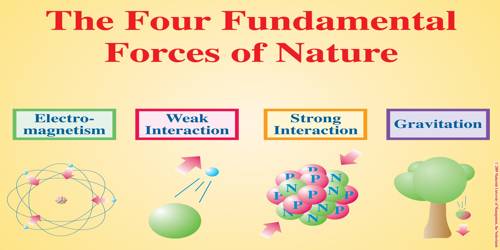Everything what you call "reality" and "real world observation", is basically governed and build up by the, for human invisible, electromagnetic frequencies except LIGHT.
So your "physical reality" is nothing worth without considering these invisible E&M forces and their attached energy patterns in formation and motion.
I don’t dispute the importance of EM fields and EM forces, in their interactions with elementary particles (hence particle physics), in quantum field physics, in nuclear physics, in astronomy, in astrophysics & cosmology, etc.
But I am not the ignoring other forces (weak nuclear, strong nuclear & gravitation) at play and in their roles they played in those fields and disciplines that I have already mentioned.
You are the one who being narrow-minded with your claims that “light” explains all, when it don’t.
Light alone, -
- doesn’t explain what hold quarks together in hadron particles (eg protons, neutrons), and what hold protons together within the atomic nuclei in which strong nuclear force,
- nor do light doesn’t explain fully what causes radioactive decays of particles in nuclear fission (weak nuclear force),
- what causes planets orbiting star or stars orbiting the galactic centre (gravitational force).
I do agree with you that EM is stronger than gravitational force, but both have infinite range at astronomical level, and at quantum and subatomic level, EM force is definitely weaker than strong nuclear force.
And you are not as bright as you think.
I am quite sure you have some basic knowledge about electric charges, basic knowledge about magnetism, and basic knowledge about atom and their particles.
But you are not thinking logical how everything together.
In magnetic fields, you know that “like” poles would repulse each other, “opposite” poles attract each other.
Likewise, fields surrounding electric charges, two negative charges would repel each other, and negative charge & positive charge attract one another and become electrically neutral.
Pretty basic, right?
But what holding all the positive charged protons together in atom? Shouldn’t all those proton repelling each other?
It can’t be light or EM force holding the protons together within the nucleus shell. The EM force isn’t strong enough to keep a nucleus full of positive-charged protons.
What’s the protons in place is STRONG NUCLEAR FORCE, not electromagnetic force.
And as strong as EM force when compared with weak nuclear force and gravitational force, you are overlooking another simple basic fact, EM wave like “light”, have problem with another particle or atom or large massive object, which deflect or reflect or bounce light, or refract light, or completely absorb light.
Do you really think light can move planets, stars or galaxies? Ok.
Try to explain this scenario.
Take for instance, beam of light moving at speed of light, collide with asteroid moving in the opposite direction. What do think would happen to asteroid?
- Do you think the light would have enough force, to cause the asteroid move the same direction?
- Would the asteroid bounce off the light, or the other way around?
- Would the (EM) forces of the light completely destroy the asteroid?
Please explain to me what would happen to asteroid when it collide with your all-powerful LIGHT?
NO!

Wait, I really would like to know your answer, but let me get popcorns

or chips

, before you start.


